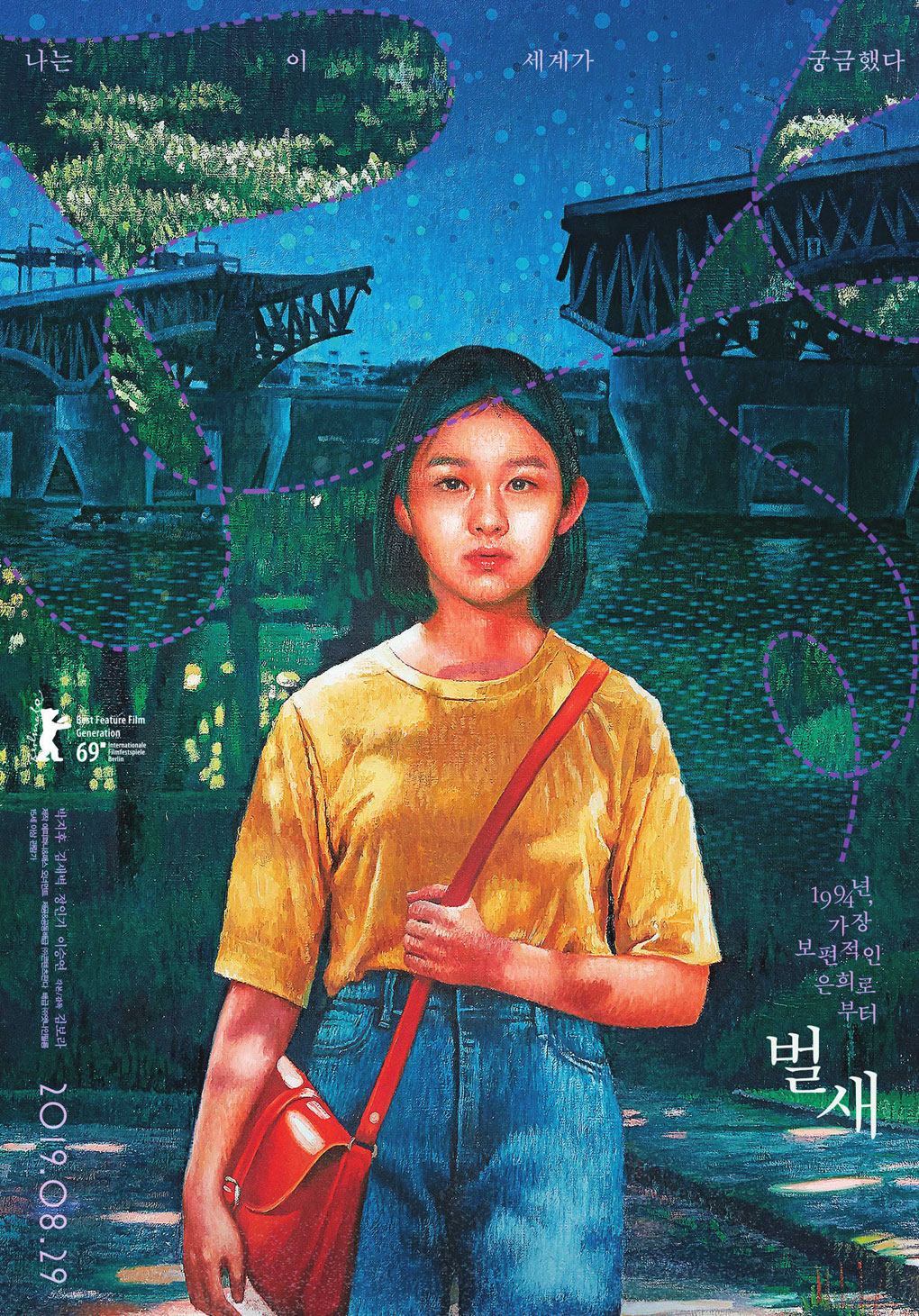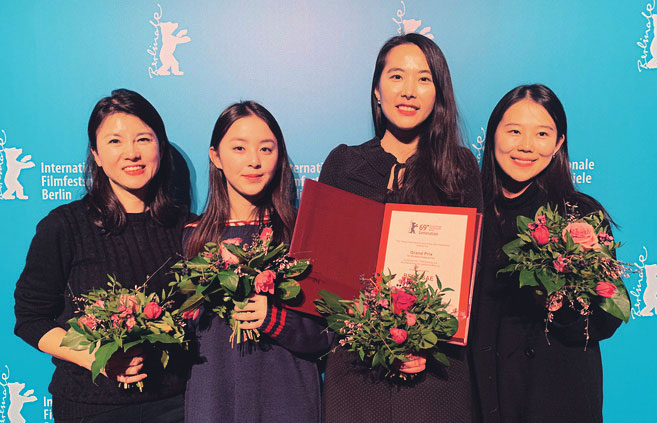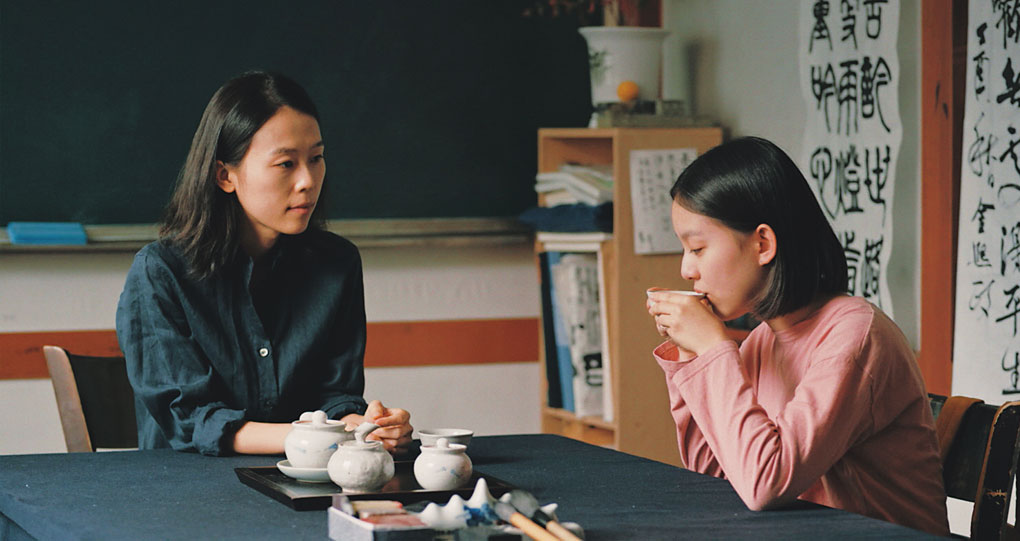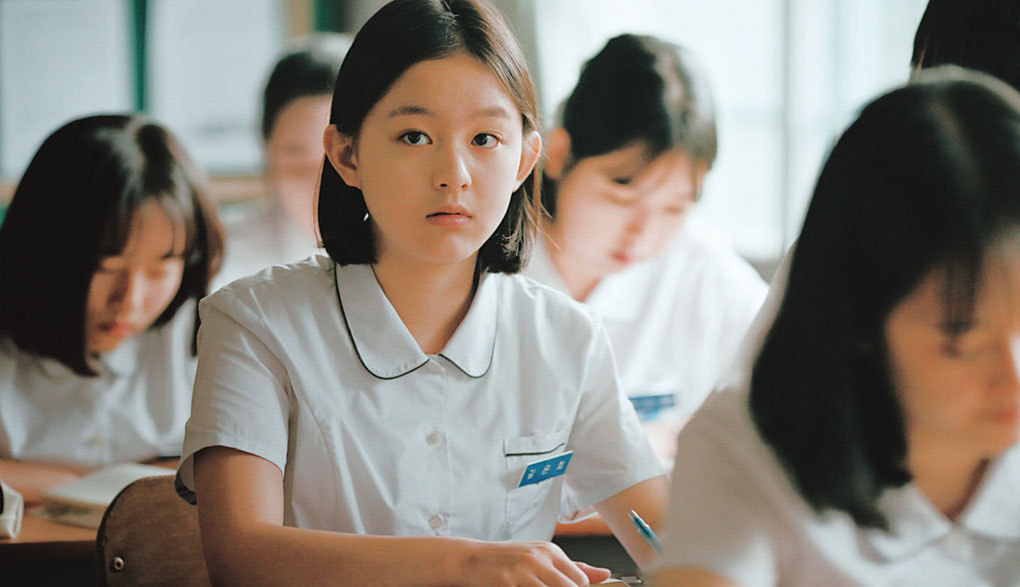In the independent, award-winning “House of Hummingbird,” the female protagonist struggles to make sense of her world. Just like a hummingbird, which flaps its wings 90 times per second, the director of the film unravels her autobiographical story with seemingly effortless ease.
On August 29, 2020, at the one-year anniversary celebration of “House of Hummingbird,” Kim Bo-ra, the director and screenwriter, described her predominant emotion while making her critically acclaimed movie: shame.
“I had been ashamed of myself for clinging too much to the movie while I was making it. I heard so many people tell me, ‘Take it easy. Why do you work so hard?’ There’s almost a culture in Korea where people who chase their dreams are considered too naïve, as if they know nothing of the world. That’s why I kept hidden from other people for a long time my wish to become a film director. If I were to go back in time, I think I could be less ashamed of myself. If there’s anyone here who wants to work hard to realize a dream, please don’t feel ashamed of that sincerity or of how much you love that dream.”
Prestigious international film festivals showered the movie with more than 50 awards in 2019. Starting with the Grand Prix of the Generation 14plus International Jury at the Berlin International Film Festival, the movie went on to scoop up awards in major categories at the Tribeca Film Festival, the Seattle International Film Festival, the Beijing International Film Festival and the Athens International Film Festival. It also won the Network for the Promotion of Asian Cinema (NETPAC) award at the Busan International Film Festival, as well as Best Director and Best Supporting Actress at the Baeksang Arts Awards in Seoul.
The Guardian has ranked “House of Hummingbird” No. 18 on its list of classics of modern Korean cinema. In the United States, the film was available for online screenings in the summer of 2020 and received rave reviews. The New York Times wrote, “Kim discreetly balances the personal and the social, bringing us close to Eun-hee while also letting us see the other realities and truths – a national tragedy, a news bulletin, a friend’s pain – that she is slowly starting to notice.”
Movie critic site rogerebert.com gave the film a perfect score and enthused, “Although there are doubtlessly aspects of the story that will resonate more deeply with Korean audiences (who will presumably be more primed for the major event that the story is building towards in the final scenes), [Kim] finds a way of recognizing and depicting the emotional perils of adolescence – especially the way in which seemingly unshakeable friendships can turn on a dime – in ways that cut across all cultural boundaries.”
On Rotten Tomatoes, a movie ratings aggregator known for its Tomatometer, the movie has scored 100 percent positive reviews. In comparison, “Parasite,” winner of the Palme d’Or and the Academy Award for Best Picture, scored 99 percent.

The main poster for the movie “House of Hummingbird” (2019) directed by Kim Bo-ra. Set in 1994 when the Seongsu Bridge over the Han River collapsed, the movie depicts an eighth-grade girl learning about life and the world. The poster is made of an original oil painting by a young rising artist, Kim Seung-hwan. © EPIPHANY FILM / MASS ORNAMENT FILMS
Self-Regard
The film’s protagonist is Eun-hee, a second-year middle school student. Kim mined memories of her early teen years to pen the semi-autobiographical script. On screen, the friendship, violence, alienation and affection Eun-hee experiences at home, in class and in her neighborhood cram school delicately mesh with the social circumstances of Korea in 1994. They form the backdrop of one of the worst tragedies in modern Korea: the collapse of Seoul’s Seongsu Bridge on October 21, 1994. Thirty-two people died and 17 were injured due to the bridge’s structural failure, a result of shoddy construction. The incident left a deep, humiliating scar in the hearts of many Koreans that remains decades later. It was a pivotal moment for Kim as a young teen; she has said in interviews that she wanted her movie to highlight the consequences of Korea’s all-out, rapid modernization. Accordingly, 1990s Korean society is exhibited in a frank, straightforward manner.
Worth noting is the fact that socially conscious films leading New Wave Korean cinema since the 1990s have predominantly been the works of male directors whose narratives begin from macro-social discourse. In contrast, “House of Hummingbird” manages to capture the atmosphere of contemporary Korean society with personal and trivial episodes from the lives of the protagonist and the characters around her. This comes from the power of a female director who “sincerely loved” the protagonist. Kim spent three years searching for the right actress to play Eun-hee.

Kim Bo-ra (third from left) poses with the movie’s cast after receiving the Grand Prix of the Generation 14plus at the Berlin International Film Festival in 2019. © Ku Semi
“House of Hummingbird” manages to capture the atmosphere of contemporary Korean society with personal and trivial episodes from the lives of the protagonist and the characters around her.


With her family not communicating enough and her school teacher only emphasizing competition, Eun-hee shares her thoughts and frustrations with her cram school tutor. © EPIPHANY FILM / MASS ORNAMENT FILMS
Cry for Help
In one of the early scenes, Eun-hee’s brother beats her and we learn this is hardly a one-off occurrence. At dinner, Eun-hee musters the courage to tell her parents about the violence. She wants her father to wield his authority, but he remains silent. Her mother offers no shield either; she replies instead, “You two, stop fighting.” Clearly, Eun-hee’s brother is a serial aggressor and she is his punching bag, but her parents treat their daughter’s plea as if it were a request to settle a simple sibling spat. Her father is indifferent and her mother offers a solution in the best way she can while being compliant with the patriarchal hierarchy of the family.
Toward the end of the movie, Eun-hee yells at her parents and her brother slaps her. This time, her father shouts, “How dare you strike your sister in front of your father!” The message is that he will turn a blind eye toward his son’s violence as long as it isn’t displayed in front of him. This is very typical of an authoritarian person who overvalues hierarchal protocols. In Korean society, many young girls share Eun-hee’s plight to a lesser or greater extent. Eun-hee does not seek to escape. She goes to school calmly but shares her grievances with her best friend – Young-ji, a teacher at the neighborhood cram school.
Young-ji attended a prestigious university, but is on leave for reasons unknown. Though not explicitly explained in the movie, Young-ji’s eyes drift when she broaches the topic, in a manner common among young people at the time; student activism in the nation’s pro-democracy movement had lost steam by the early 1990s.
Eun-hee asks Young-ji, “Did you ever hate yourself?” The teacher relates a frequent self-loathing. Even though Young-ji seems to bear very different issues, Eun-hee finds in her a kindred spirit. What is comforting to this young, sorrowful soul is not a modicum of condolence expressed by an adult she admires; rather it’s the act of sharing her sorrow with someone in a similar situation. To all Koreans who have in their collective memory a series of tragic accidents that includes the collapse of Seongsu Bridge, the sound of the “hummingbird” flapping its wings resonates deeply.
Questions to the Viewers
In South Korea, political democratization continued into the 1990s. Alongside it came a renaissance of popular culture. New entertainment permeated the decade, including the trio Seo Taiji and Boys (forerunners of K-pop) and TV series such as “Eyes of Dawn,” set against the Japanese colonial period, and “Hourglass,” which dealt with the turbulence of Korea’s modern history. Today, cultural products stoking nostalgia for this era gain popularity. “Reply,” an anthology TV series in which the timeline of a group of friends flips back and forth between the present and the past, has been a consistent hit, and songs that were popular at the time are making waves on YouTube with millions of views.
“House of Hummingbird” remembers the 1990s a bit differently, posing questions to its audience: what were you like back then? Were you full of hope? Were you someone who was bullied at school or was it the other way around? What did we learn from the collapse of Seongsu Bridge or Sampoong Department Store the following year, another grave mishandling of construction that claimed more than 500 lives, the largest peacetime disaster in South Korean history?
At about the time the character of Young-ji would have entered university, movie makers were being imprisoned for secretly producing anti-government films. “House of Hummingbird” faithfully recalls touchstones of that gloomy era, a reminder of those days for viewers who lived them and an introduction to a different face of Korea for those who did not. There is certainly no shame in that.